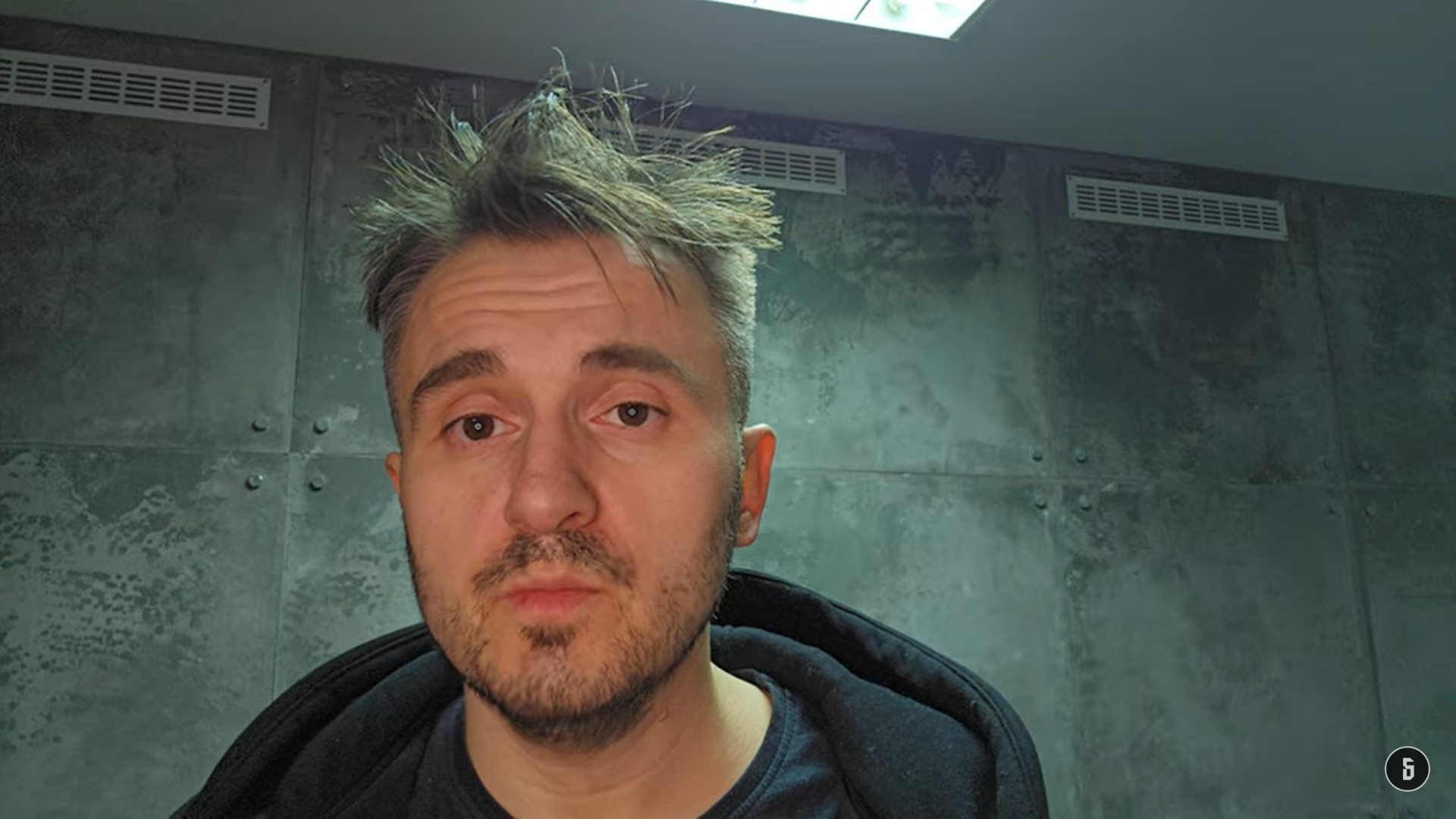The IPI global network is alarmed by what appear to be attempts to intimidate and discredit journalists working for two popular investigative news outlets in Ukraine known for their coverage of corruption in the country. IPI calls on Ukrainian authorities to investigate these recent incidents targeting journalists from Nashi Hroshi and Bihus.info and hold those responsible to account.
On Monday, unknown men came to the home of Nashi Hroshi journalist Yuri Nikolov, demanding he open the door and “speak with them”, all while taping pieces of paper with the word “traitor” and other insults on his door, as well as threatening to use violence. The men, who claimed to be soldiers returning from the frontline, accused the journalist of being a “traitor” for refusing to fight in the war.
In a post on Facebook, Nikolov said he was not at home at the time of the event, and that the only people who heard the men were his elderly mother, who currently lives with him due to her medical condition, as well as his neighbors.
The only publicly available video of the incident was posted immediately after the event on the Russian-language Telegram channel Kartochniy Ofis (“Office of Cards”), which some public figures in Ukraine have linked to the office of President Zelensky. Leading online media outlet Ukrainska Pravda connected the posting of the video to a recent interview to the outlet given by Nikolov, in which he called Zelensky an “evader (of military service)”, arguing that Zelensky was “evading his obligation to lead a country at war”. Some journalists in the country have speculated that the apparent intimidation attempt may have been a response to the interview, though it is not clear who is responsible.
In Ukraine, Nikolov is known as the author of the first major journalistic investigation into government corruption carried out after the start of Russia’s full-scale invasion. In January 2023, he reported on mass irregularities in the purchase of food products for the Ukrainian army. The investigation was widely covered in Ukraine and became known as “eggs for 17 hryvnias”, which was the reported price paid by the Ministry of Defence for a batch of goods, well above market prices at the time in Ukraine.
Surveillance operation
On Tuesday, in a separate incident, a largely unknown YouTube channel called Narodna Pravda published a video showing camera operators for Bihus.Info, a leading Ukrainian investigative outlet, ordering and consuming cannabis, amphetamine, and other illegal drugs.
Denys Bihus, the founder of Bihus.Info, condemned the actions by the camera operators in a video posted on YouTube, saying he would fire them. At the same time, he noted that the video published online falsely claimed that the outlet’s journalists were also involved in the incident – no Bihus.Info journalists were visible or audible in the recordings.
However, Denys Bihus as well as Bihus.Info editor Maksym Opanasenko also indicated that the video appeared to be part of a wider surveillance operation targeting Bihus.Info, its journalists, and its staff.
Speaking to Ukraine’s public broadcaster, Suspilne, Opanasenko said that team members had previously noticed that they were being followed, and had also seen suspicious people near the office building. Opanasenko added that unnamed journalists had received messages mentioning a surveillance device installed in the office. The surveillance lasted “for at least a few months”, Opanasenko told online media outlet Hromadske.
According to Denys Bihus, “the wiretapping and surveillance [of journalists] was illegal, and the goals of those who recorded this are clear,” he said in the initial video he published in reaction to the incident.
Bihus.Info is known for uncovering multiple cases of high-level corruption in Ukraine since its founding by Denys Bihus in 2013. Online media outlet Hromadske linked the publication of the video on Tuesday with a recent investigation by Bihus.Info alleging that the office of President Zelensky was collecting information about media coverage on high-level civil servants. However, Bihus.Info itself did not say what it thought was the reason for the surveillance.
Later on Wednesday, the Security Service of Ukraine (SBU) announced that it would investigate the case and that a criminal investigation was opened for “illegal acquisition, sale or use of special technical means of obtaining information”. In a statement, the SBU acknowledged the need for “transparent and unimpeded work” of journalists in Ukraine, as an “important condition for the development of Ukraine as a democratic state”.
“Facts of surveillance should be given a legal assessment, regardless of whether or not the covert filming [showed that there was] a possible violation of the law related to the circulation of narcotic substances,” the SBU wrote in its statement.
Ukrainian authorities must investigate
“In a period of just a few days, it appears that two serious attempts were made to discredit and intimidate investigative journalists in Ukraine”, IPI Deputy Director Scott Griffen said. “It is not clear at this stage who is behind these incidents, and we urge Ukrainian law enforcement to swiftly and transparently investigate them and hold those responsible to account, in order to also deter similar actions in the future.”
He added: “We welcome the statement made by the SBU on opening an investigation into the surveillance of journalists at Bihus.Info, and urge authorities to take similar steps in the case of Yuri Nikolov. It is essential that the Ukrainian authorities continue to make clear that independent journalism is a cornerstone of democracy and must be fully respected in the country.”
IPI is closely tracking press freedom developments in Ukraine. Journalism in the country has been under tremendous pressure as a result of Russia’s war of aggression. IPI’s Ukraine War Press Freedom Tracker has registered no fewer than 406 war-related violations of media freedom since the start of Russia’s full-scale invasion on February 24, 2022. The overwhelming majority of war-related incidents are physical and online attacks perpetrated by Russian forces.



